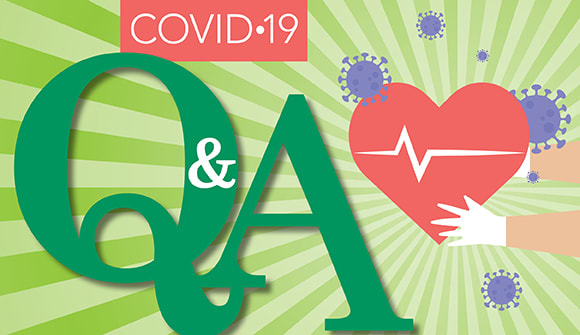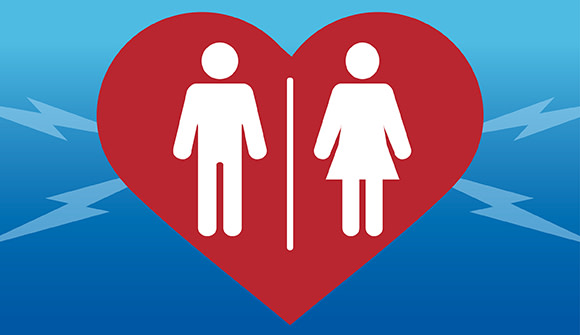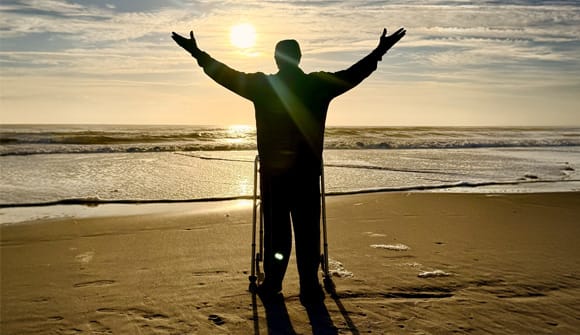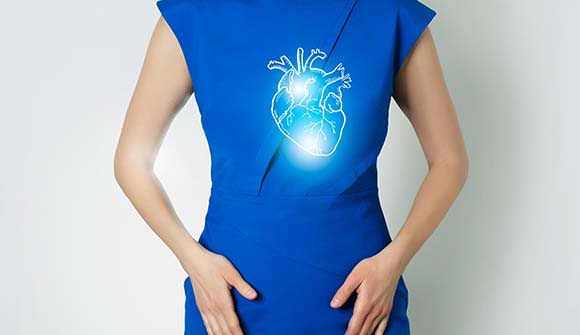Protect your heart
Can people with cardiac disease get the COVID-19 vaccine?
Article Date:

If there has been one certainty about COVID-19, it is the uncertainty that has existed since this new virus first emerged. For those with a heart condition, the pandemic has presented new questions about how to best manage their health, including whether to get a vaccine.
Chetan Hampole, MD, a cardiologist with Baptist Heart Specialists, answers the most common questions he receives about COVID-19, heart conditions and the vaccine.
I have heart disease. Can I get the COVID-19 vaccine?
Not only can you get it, but all guidelines from reputable sources say you should get it. If you have heart disease, you are at a higher risk for both catching the virus and having a very bad outcome if you get sick. So yes, we recommend getting the vaccine.
Are there any heart conditions that make me NOT a candidate for getting the vaccine?
Most people with heart disease can receive the vaccine. If someone has previously had allergic reactions to other vaccinations, such as hives or throat swelling, he or she likely should not get this one. Patients should talk to their cardiologist about their options.
Are there any heart conditions for which the vaccine is required?
There are no conditions that I would say require a vaccine. However, patients who are high risk and living in a severely immunocompromised state, like heart transplant patients on immunosuppressants (which keep the body from rejecting the organ), or patients on long-term, high-dose steroids such as prednisone, would benefit from getting a third dose of one of the mRNA vaccines. There are two options: Pfizer and Moderna. In general, the goal of vaccination is to decrease the likelihood of infection or a bad outcome if a person does get sick. The vaccine has proven to do both.
Are there COVID-19 symptoms that only patients with heart disease could experience?
I would say exacerbation of arrhythmias (irregular heartbeats) and heart failure are common for people who have a COVID-19 infection. For example, with atrial fibrillation (Afib), the typical worsening symptoms would be palpitations, heart rate above 100 (tachycardia), shortness of breath, chest discomfort, fatigue and dizziness. If COVID-19 is present, they also may have infectious symptoms like fever or chills. Patients experiencing any of these symptoms should contact their cardiologist.
Can people with heart disease get monoclonal antibody therapy or other approved treatments?
Yes, these therapies can be used in most cases. Presumably, when you are vaccinated, your symptoms are going to be less severe, which ultimately prevents you from needing to go to the hospital. You can do prescribed conservative treatments like steroids at home, as opposed to being admitted and needing IV medicines and Remdesivir. So, all of the treatments are available to you, but the likelihood of you needing them is much less if you are vaccinated.
It's flu season. Can I get the COVID-19 and flu vaccines at the same time?
It's safe for most eligible individuals, including those with heart disease, to get both vaccines at the same time. However, it's best to consult your primary care physician or cardiologist for individual guidance.
Where can I get more information?
You should always start with your cardiologist because he or she will know your history. In addition, you can visit the Baptist Health COVID-19 information center. There is also good information on the CDC website, which is easy for patients to understand. Finally, the American Heart Association's website is helpful for specific information about COVID-19 and heart disease.
If you have questions about heart disease and the COVID-19 vaccine, contact your cardiologist. Baptist Heart Specialists has more than 30 board-certified, experienced cardiologists who provide patients with an unmatched range of services and expertise in heart care in nine locations.
Sources: American Heart Association, CDC



